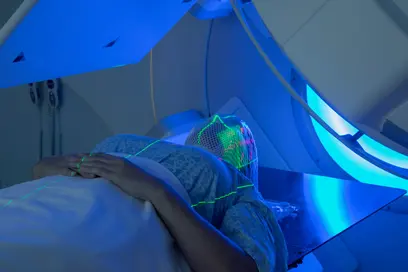Pancreatic cancer is regarded as the cancer type with the lowest survival rates. Fewer than seven in 100 patients survive the first five years after diagnosis. Clinicians attribute this devastating prognosis to two circumstances: Pancreatic cancers often do not cause any signs or symptoms and by the time they are detected they have already reached a very advanced stage in most cases. In addition, they spread outside the pancreas very early.
“We think that the cells often already have metastatic capacity before even transforming into cancer cells," said Jörg Hoheisel from the German Cancer Research Center (Deutsches Krebsforschungszentrum, DKFZ) in Heidelberg. This is contradictory to the common concept that cancer cells undergo a series of mutations in the course of tumor growth to acquire the ability to leave the primary site of the tumor and start migrating to other parts of the body.
“To check this hypothesis, we searched the tumor cells for molecular changes that are indicative of the tendency to spread early," Hoheisel explained. Hoheisel and his colleagues concentrated their search on so-called microRNAs. These molecules, which contain only around 20 building blocks, regulate a variety of functions in the cell. The investigators examined whether epigenetic changes – alterations that do not change the basic sequence of the human hereditary substance DNA – in cells of the pancreas have an impact on the production of these regulatory molecules. To this end, they compared cancer tissue samples with normal tissue as well as with chronically inflamed pancreatic tissue. Chronic inflammation of the pancreas (pancreatitis) is an important risk factor that leads to a 15-fold increase in the likelihood of contracting pancreatic cancer.
Hoheisel’s team identified a number of differentially expressed microRNAs. Among these, miR-192 caught the researchers' particular attention. While miR-192 occurs in ample quantities in a healthy pancreas, its levels are very low in inflamed or cancerous tissue. Using miR-192 levels in the cells, the investigators were able to differentiate with very high certainty between normal and chronically inflamed pancreas tissue as well as between healthy pancreas tissue and pancreatic cancer. By contrast, they found no difference in miR-192 levels between chronically inflamed and malignant tissue or between various tumor stages.
Their most important observation was that survival times of patients after their cancer had been diagnosed were particularly long if their tumors produced miR-192 at relatively high levels. Therefore, low miR-192 levels in the tumor tissue are a clear marker of a rapidly progressing disease. The researchers also identified the target molecule of miR-192: miR-192 blocks the production of a protein which is known to promote cancer progression.
In order to determine whether reduced miR-192 levels are only a chance side effect of cancer and inflammation or whether they in fact influence tumor progression, the investigators equipped pancreatic cancer cells with additional miR-192. As a result, division rates and invasiveness were reduced and the cancer cells died by apoptosis.
“Our interpretation of these results is that epigenetic changes that occur already in inflamed pancreatic tissue lead to reduced production of miR-192. This means that the cells acquire the capacity of invasion and metastasis, which initially has no consequences," Hoheisel explained. “The actual transformation into cancer cells is caused by other, unrelated factors and can occur later. This results in cancer cells that are capable, from the very start, to invade surrounding tissue and spread metastases. “
Hoheisel and his co-workers now intend to examine whether miR-192 can be used as a clinical marker for pancreatic cancer and may be used as a starting point for new options for treating or preventing pancreatic cancer.
Sandeep K. Botla, Soniya Savant, Pouria Jandaghi, Andrea S. Bauer, Oliver Mücke, Evgeny A. Moskalev, John P. Neoptolemos, Eithne Costello, William Greenhalf, Aldo Scarpa, Matthias M. Gaida, Markus W. Büchler, Oliver Strobel, Thilo Hackert, Nathalia Giese, Hellmut G. Augustin and Jörg D. Hoheisel: Early epigenetic down-regulation of microRNA-192 expression promotes pancreatic cancer progression. Cancer Research 2016, DOI: 10.1158/0008-5472.CAN-15-0390
A picture is available at:
http://www.dkfz.de/de/presse/pressemitteilungen/2016/bilder/panc-si2-alfa-ph3-2.jpg
Caption: A pancreatic cancer cell. The nucleus is stained blue, the fibers of the cytoskeleton are labelled with a red fluorescent dye. Source: Dr. Nathalie Giese, Chirurgische Universitätsklinik Heidelberg
About DKFZ
With more than 3,000 employees, the German Cancer Research Center (Deutsches Krebsforschungszentrum, DKFZ) is Germany’s largest biomedical research institute. DKFZ scientists identify cancer risk factors, investigate how cancer progresses and develop new cancer prevention strategies. They are also developing new methods to diagnose tumors more precisely and treat cancer patients more successfully. The DKFZ's Cancer Information Service (KID) provides patients, interested citizens and experts with individual answers to questions relating to cancer.
To transfer promising approaches from cancer research to the clinic and thus improve the prognosis of cancer patients, the DKFZ cooperates with excellent research institutions and university hospitals throughout Germany:
- National Center for Tumor Diseases (NCT, 6 sites)
- German Cancer Consortium (DKTK, 8 sites)
- Hopp Children's Cancer Center (KiTZ) Heidelberg
- Helmholtz Institute for Translational Oncology (HI-TRON Mainz) - A Helmholtz Institute of the DKFZ
- DKFZ-Hector Cancer Institute at the University Medical Center Mannheim
- National Cancer Prevention Center (jointly with German Cancer Aid)
The DKFZ is 90 percent financed by the Federal Ministry of Research, Technology and Space and 10 percent by the state of Baden-Württemberg. The DKFZ is a member of the Helmholtz Association of German Research Centers.



